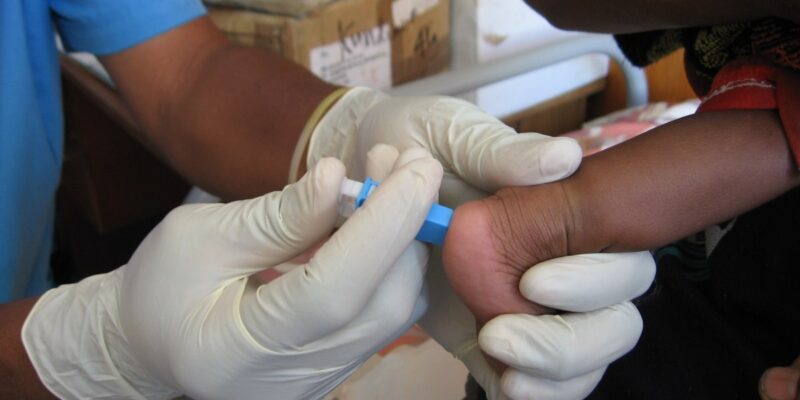SAVING LIVES; IMPROVING LIVELIHOOD
Ghana’s health sector has benefitted from large scale investments into infrastructure like the expansion and building of district and regional hospitals as well as Polyclinics to bring service closer to the people.
It is considered to be one of the most advanced in West Africa. On a visit to Ghana, billionaire philanthropist Bill Gates said the country’s primary healthcare system was “probably the best in Africa”.
Over the years, successive governments have launched several initiatives to widen access to healthcare. The subsidized National Health Insurance Scheme (NHIS) with the objective of attaining universal coverage and to provide financial access to quality health care for residents in Ghana, is one of such initiatives. The NHIS was recognized by the United Nations Development Programme (UNDP) and the World Health Organization (WHO) for “improving financial access to health care services, particularly for the poor and marginalized.”
Ghana’s health care priorities are to expand towards universal coverage and to improve the key indicators of general health, including reducing preventable mortality and increasing life expectancy. The health care system is overseen by two (2) main bodies – the Ministry of Health (MoH) and the Ghana Health Service (GHS). The Ministry of Health is responsible for policymaking as well as evaluation and monitoring. The Ghana Health Service (GHS) is charged with implementing and administering health services across the country. The Food and Drugs Authority (FDA) is the national regulatory authority charged with the regulation of food, drugs, food supplements, herbal and homeopathic medicines, veterinary medicines, cosmetics, medical devices, household chemical substances, tobacco and tobacco products. The public sector arm of the Ministry of Health comprises the Ghana Health Service, teaching hospitals and quasi-government health institutions while the private sector arm oversees the private hospitals and maternity homes board. The ministry also regulates the traditional medical providers who supply herbal remedies.
To enhance service delivery for the Ghana Health Service (GHS), the government introduced a drone delivery system in 2019. The project, dubbed “Fly-To-Save-A-Life,” is a 24-hour health delivery system which is operated by Zipline International from four distribution centres across the country, and makes on-demand delivery of medical supplies to approximately 2,000 health facilities. The rationale for the initiative was to ensure that essential medical supplies reached the most vulnerable and difficult to-reach communities in the country. According to Globocan, the number of new cases of cancer in Ghana will increase from 15,820 in 2012 to 24,991 by 2030. Most of these new cases will come from females under the age of 65. Many cases are often undiagnosed or misdiagnosed, which is due to inadequate healthcare infrastructure and the widespread lack of awareness regarding the disease. In response, new programmes such as Paediatric Oncology, Rheumatology and Paediatric nursing among others were introduced by accredited specialised colleges to improve service conveyance. Some of these colleges include the College of Physicians and Surgeons, Koforidua Regional Hospital, Tamale Teaching Hospital, Cape Coast Teaching Hospital, 37 Military Hospital, College of Pharmacy, Ho Regional Hospital, Komfo Anokye Teaching Hospital, Korle-Bu Teaching Hospital, Food and Drugs Authority and Pharmacy Council.
In March, 2020 the first two Covid-19cases were recorded in Ghana. As of March, 2022, 160,761 cases had been recorded with 159,227 recoveries and 1,445 deaths. The Government’s response has since shifted from non pharmaceutical interventions towards a vaccinations programme, which began in February 2021 when it became the first country outside India to receive the Covid-19 vaccines from the COVAX Facility. A little over a year later, 4.87 million Ghanaians have been fully vaccinated. Ghana is pushing ahead with its ambition of becoming the hub for pharmaceutical and healthcare investments in the Economic Community of West African States (ECOWAS) region. Its robust primary healthcare system, increasing investments in healthcare infrastructure and the presence of several high profile indigenous pharmaceutical companies make it well-placed to achieve this vision. Already, citizens from other West African countries can regularly be found travelling to Ghana to seek medical treatment due to the availability and affordability of healthcare facilities and services in Ghana.












Comments